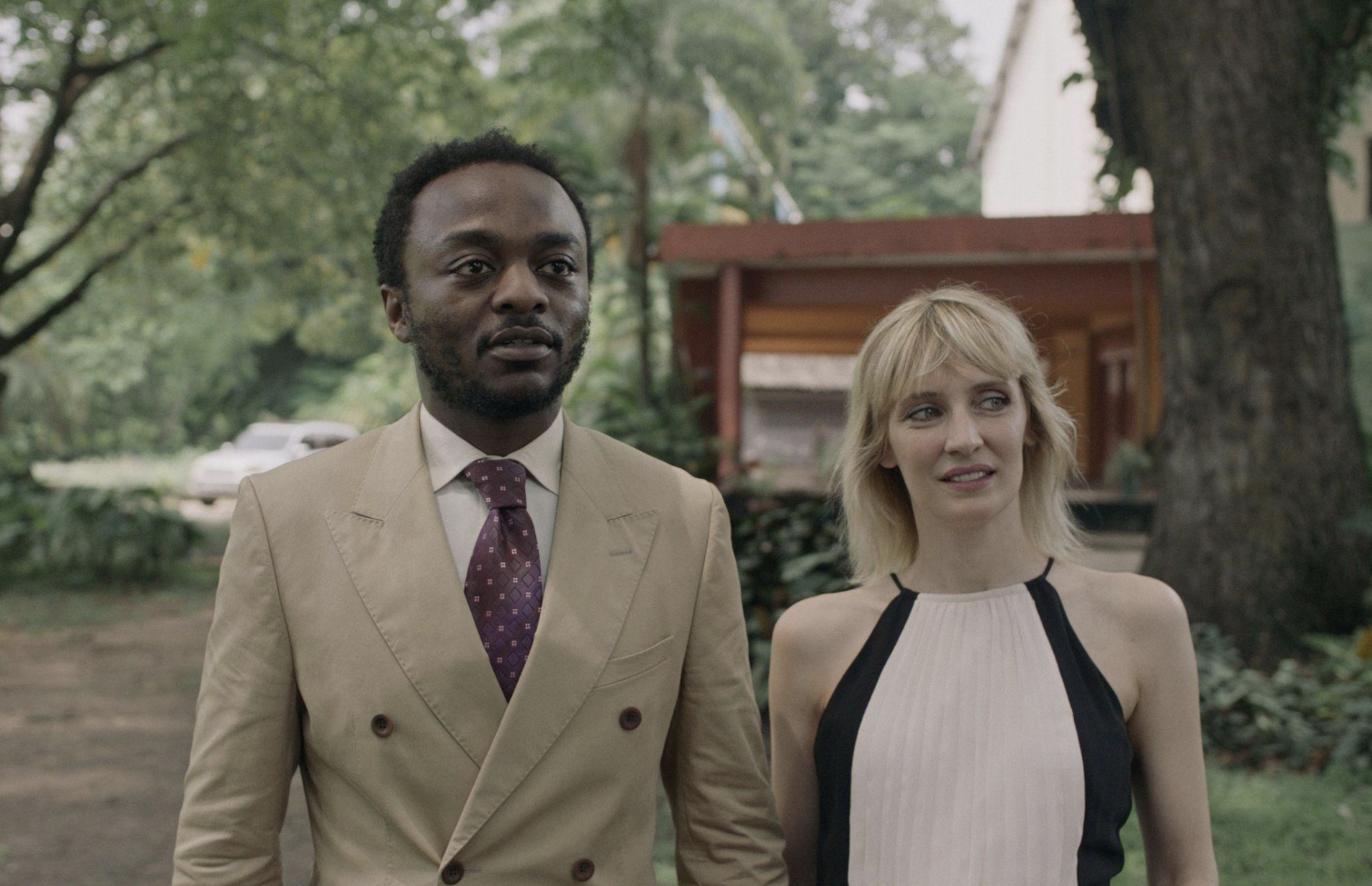Starting this week, Dutch cinemas are screening the film debut of Belgian-Congolese artist Baloji. It is a wondrous spectacle, a creation that is strongly and deftly socially aware.
A touching scene: in front of a mirror in Belgium, the protagonist Koffi is practising how to say in Swahili that his soon-to-be-born twins will bear his parents’ names. It is a gesture, a sign of attachment. I may have left for Europe 18 years ago, but I have not left you behind. Where I came from lives on in me. The dowry Koffi and his white, pregnant girlfriend plan to hand over to his family in Congo is another sign of kinship.
But at Kinshasa airport, his family is nowhere to be seen. When the couple reaches Koffi’s native region in a hire car, the reception waiting for them is reserved, to say the least. An uncle tells Koffi, beautifully portrayed by actor Marc Zinga: “You are the eldest son. That brings obligations.” The tone is set. Imagine nothing, here we determine what you have to do and how you behave. Thus begins a journey through the stifling conventions to which a poverty-stricken mining community frenetically clings. Their only asset.
Augure, the debut of Congolese-Belgian rapper and artist Baloji, received with great enthusiasm at the Cannes Film Festival and elsewhere, tells the story of an impossible reunion of vastly different worlds. In four parts, named after Koffi, his sister Tshala, his mother Mujila and the young gangster Paco, the drama unfolds, full of clashing elements and synchronised with the Easter story of the return of Jesus Christ. We see coughing miners proudly digging up mineral resources. One of the workers says: “Without us, the world would be dead.” When a few drops of blood from Koffi's nose land on the head of a new-born nephew, the family loses itself in hysteria because they see in it a sign of the devil, a zaholo. But Koffi knows that high blood pressure, diagnosed by the family doctor, is the cause of this discomfort.
As the film progresses, Koffi’s aversion to the reality he finds at home intensifies. But at the same time, that sense of kinship rages within him. Or, as his sister reminds him, pointing to her head, “This seed they plant in here, it grows like weed.”
It is the carnivalesque setting – full of brass band musicians with feather headdresses, a sawed-off orphan girl, boys in lilac dresses, a miner's ballad about the murdered French revolutionary Jean Jaurès, a re-enactment of the Hansel and Gretel fairytale and a desert full of “scarecrows” – that gives Augure a magical-realist atmosphere. But it is above all a creation of the artist that Baloji – rapper, performer, fashion designer, and filmmaker – is, a colourful spectacle to which the immeasurable beauty of the Congolese landscape adds another dimension. A creation that is strongly and deftly socially aware, though.
Koffi's relationship with his mother is initially cooler than cool. But towards the end of the film, she comes to a confession. She was once branded a witch by her husband, a character who remains invisible in the film and is eventually buried. “You were right to leave,” she tells Kofi.
Watch the trailer here



